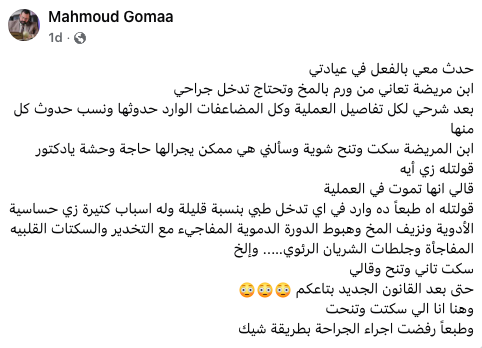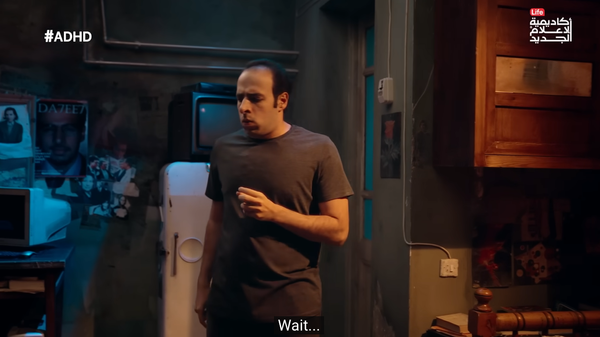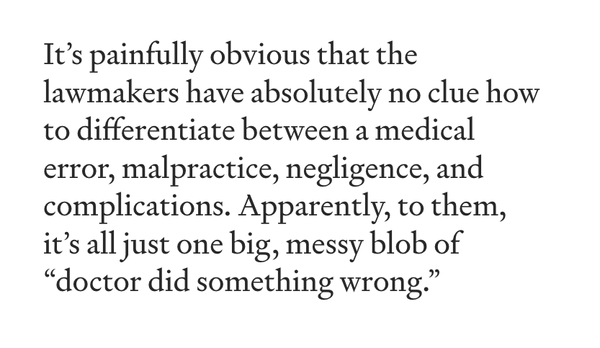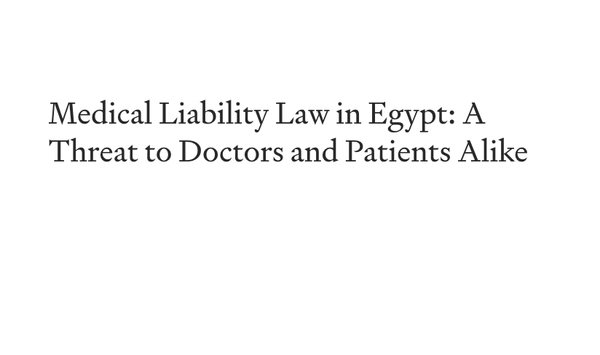Why Defensive Medicine is a Growing Danger to Patient Safety in Egypt
Are You Truly Ready to Put Your Mobile or Web App to the Test?
Don`t just assume your app works—ensure it`s flawless, secure, and user-friendly with expert testing. 🚀
Why Third-Party Testing is Essential for Your Application and Website?We are ready to test, evaluate and report your app, ERP system, or customer/ patients workflow
With a detailed report about all findings
Contact us nowTable of Content
As a doctor practicing in Egypt, I’ve seen firsthand how defensive medicine is reshaping healthcare—and not in a good way. Defensive medicine, simply put, is when doctors prioritize avoiding lawsuits over providing optimal care. And sadly, it's becoming more common in Egypt.
Patient Satisfaction vs. Patient Safety

Every doctor wants their patients to be satisfied, but the increasing fear of lawsuits is pushing us to prioritize "playing it safe" over what’s medically necessary. Sometimes, that means refusing risky but life-saving surgeries or over-prescribing unnecessary tests just to cover ourselves.
While this might seem like a way to ensure patient satisfaction, it compromises patient safety in the long run.
Patient satisfaction/ safety VS Doctor's safety
Let’s break it down. Patient satisfaction is a cornerstone of good healthcare. A happy patient means trust, better communication, and often, better outcomes. But when defensive medicine comes into play, doctors may overdo it with unnecessary tests or refuse to take on risky—but potentially life-saving—procedures. Why? Because avoiding complications means avoiding lawsuits. While this might make some patients feel like they’re getting extra attention, it often jeopardizes their actual safety. Imagine needing urgent surgery, but your doctor hesitates, not because you don’t need it, but because they’re scared of legal consequences.
Now, from a doctor’s perspective, it’s a nightmare. Fear of malpractice claims looms large, especially with evolving (and sometimes unclear) laws around medical liability. Doctors feel like they’re walking on eggshells, trying to protect their reputation and livelihood while juggling the weight of life-and-death decisions. Defensive medicine becomes a shield—a way to avoid trouble, but at what cost?
The real victim here is the trust between doctors and patients. Patients may start doubting their doctor’s recommendations, while doctors feel unprotected and misunderstood. It’s a vicious cycle that no one benefits from.
The solution? Clearer malpractice laws, better communication, and more education for patients about the realities of medical risks. Because healthcare should be about healing, not about playing it safe out of fear.
A Personal Story from the Clinic
Recently, a young patient visited a friend's clinic with a serious condition that required immediate surgical intervention. After explaining the details, complications, and risks involved, the family outright refused the procedure. Why? Fear of complications, bolstered by the growing mistrust between patients and doctors in our system.
The result? I had to watch helplessly as the patient left without receiving the critical care they needed.
This isn’t an isolated incident. Many of my colleagues share similar stories. Fear of medical malpractice lawsuits is paralyzing our ability to make tough decisions. And patients are the ones paying the ultimate price.
Why This is Happening
Egypt's healthcare landscape is in transition, with new medical malpractice laws aiming to regulate the system. While laws like the Egypt Medical Malpractice Law and Medical Liability Law are steps in the right direction, they have created a wave of anxiety among doctors. This uncertainty is what fuels defensive medicine.
What Does This Mean for Patients?
- Delays in Critical Care: Doctors may hesitate to perform necessary but risky procedures, leading to life-threatening delays.
- Unnecessary Tests and Treatments: You might be subjected to a battery of tests that don't add value but serve as legal cover for doctors.
- Erosion of Trust: Patients and doctors now face each other across a growing chasm of mistrust, making effective communication harder than ever.
What Can We Do?
- Educate Patients: Patients need to understand that medicine isn’t black and white. Every treatment or surgery carries risks, but that doesn’t mean doctors are reckless.
- Strengthen Doctor-Patient Communication: Trust begins with transparent and compassionate communication.
- Implement Balanced Laws: Medical laws should protect patients without making doctors feel like criminals.
Defensive medicine is a double-edged sword. While it aims to shield doctors, it often cuts down patient safety and satisfaction. As a doctor, I want my patients to trust me enough to know that every recommendation I make is for their benefit—not out of fear of lawsuits.
If you’re a patient, remember: your safety depends on trusting the medical advice you receive. And as a healthcare system, we need to work together to rebuild that trust.
Have you experienced defensive medicine in Egypt? Let’s start a conversation below. 🩺💬











